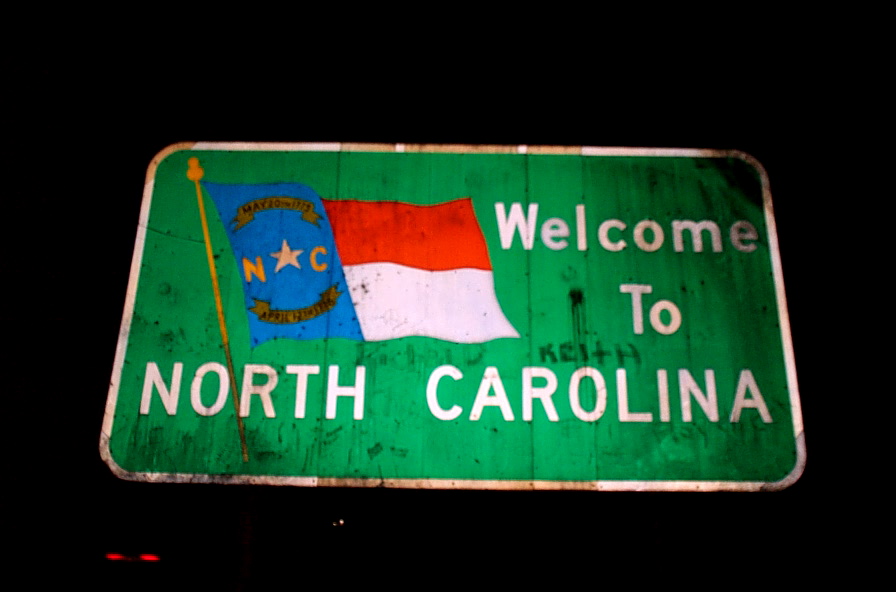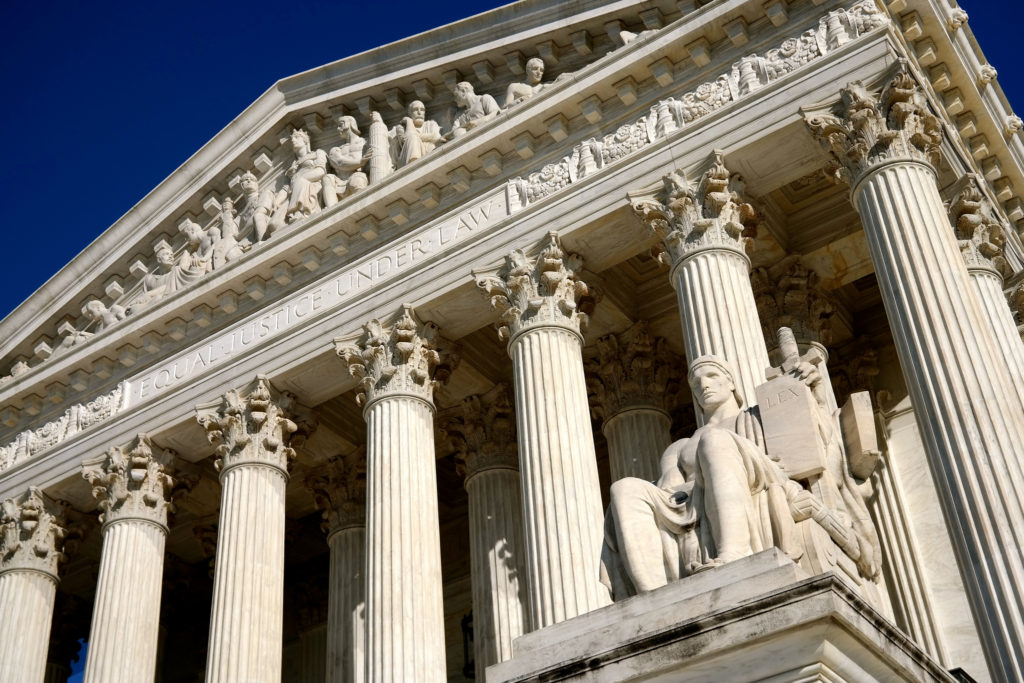First in Flight, Last in Freedom: The Worrying State of North Carolina’s Democracy
 https://flic.kr/p/PzEUS
https://flic.kr/p/PzEUS
In July 2015, the North Carolina Division of Motor Vehicles started offering an alternative to the “First in Flight” registration plate: the “First in Freedom” plate. The plate is meant to commemorate ‘‘two “firsts” established by North Carolinians during the early stages of the American Revolution’’: the Mecklenburg Declaration of Independence and the Halifax Resolves. Then-governor Pat McCrory said of the change: “North Carolina is a state of firsts and we continue to be a leader in innovation.’’
Despite North Carolina’s pride in its democratic beginnings, the Tar Heel state is struggling to live up to its heritage. Last year, a bombshell report from the Electoral Integrity Project (EIP) made the claim that North Carolina could no longer be classified as a democracy. The state’s overall electoral integrity was rated at the same level as pseudo-democracies such as Cuba and Sierra Leone, and its score on the integrity of electoral boundaries was of 7/100, the worst score ever analyzed by the EIP for any country. Other issues brought up in the report include “a large number of unopposed incumbent state legislators in the general election, poor districting […] and the GOP’s veto-proof control as a majority in the state.” According to report author Andrew Reynolds, if North Carolina was a nation-state it “would rank right in the middle of the global league table – a deeply flawed, partly free democracy that is only slightly ahead of the failed democracies that constitute much of the developing world.”
Many were quick to refute the report’s claims, pointing to potential flaws in the research. For instance, the EIP report claims that North Korea has “moderate electoral integrity” and is more democratic than Bulgaria and Romania. However, even if the EIP report may be an exaggeration, there should still be cause for worry regarding the Tar Heel state: North Carolinian democracy is not doing well. The state has been plagued by extreme gerrymandering, excessively strict ID laws, and even a GOP-organized legislative coup in 2016.
A Problematic Congressional Map
North Carolina’s congressional map has historically been a prime example of extreme partisan gerrymandering. Partisan gerrymandering is “the drawing of electoral district lines in a manner that discriminates against a political party.” Unlike racial gerrymandering, it has unequivocally been considered legitimate by the courts. That changed in January 2018, when a North Carolinian federal court ruled that the state’s congressional map violated both the first and fourteenth amendments. According to the ruling, the map was in “violation of both the constitution’s equal protection clause and an infringement on the free speech of voters who cannot meaningfully cast a ballot if the outcome is all but predetermined.” The legislature was ordered to come up with a new map within two weeks, or the court would appoint an expert to do it. The Republican party quickly asked the Supreme Court to delay the redrawing decision, which was granted. The GOP successfully argued that no decision should be made regarding North Carolina’s map before the Supreme Court hears two upcoming scheduled cases on gerrymandering. David R. Lewis, a Republican legislator, rejoiced at the decision and condemned the previous court’s “overreach“, while voter advocacy groups are still hoping for a Supreme Court decision that partisan gerrymandering is unconstitutional.

How did North Carolina end up with such a map in the first place? Every state has different rules regarding who draws the district lines. In North Carolina, the General Assembly (bicameral state legislature), currently controlled by the GOP, is in charge of drawing districts. Therefore, they ensured that the map would benefit the GOP as much as possible. A consultant hired by the GOP to redraw the map testified that he had been told to“minimize the number of districts in which
Democrats would have an opportunity to elect a Democratic candidate.”Rep. David Lewis, who was in charge of the last redistricting, has not been keeping the partisan gerrymandering a secret. He even justified it by saying: “I think electing Republicans is better than electing Democrats. So I drew this map to help foster what I think is better for the country.” His effort certainly worked. In the 2016 election, while the Republicans got 53% of the popular vote, they won an impressive 77% of the state’s congressional seats (10 out of 13).
In light of the recent Supreme Court decision to delay the district redrawing, the current map will most likely be used for the 2018 midterms. This could prove extremely problematic for the Democrats, who are trying to regain control of the House of Representatives. In the last few elections, the popular vote has been closely split between both parties, but the map has ensured an overwhelming GOP domination in the number of representatives allocated to each party. If the map doesn’t change, the outcome is also not likely to change in the upcoming election.
Strict ID Laws
North Carolina’s democracy problem goes well beyond partisan gerrymandering. The state also has a history of strict voter identification laws that were meant to prevent minorities from voting. A recent example comes with bill HB 589, a 2013 law that was struck down in 2016. The so-called “monster law” was introduced just after the Supreme Court overturned a key provision of the Voting Rights Act that forced jurisdictions with a “history of racial voter suppression” (including North Carolina) to have new voting laws approved by the federal government. The law ”cut a week of early voting, eliminated out-of-precinct voting and required voters to show specific types of photo ID”, which narrowed the ways in which North Carolinians could vote.
While the “monster law” applied to all voters, it was designed to prevent one particular group from voting: African Americans (a group of voters that overwhelmingly votes for Democrats). The Republican-controlled General Assembly used data from the North Carolina election board to design the law. Various emails show staffers asking for breakdowns of the voter turnout “by race (white and black) and type of vote (early and Election Day)” and “by race, of those registered voters in your database that do not have a driver’s license number.” The three-judge federal panel that struck down the law called it “the most restrictive voting law North Carolina has seen since the era of Jim Crow” and stated that the law targeted “African Americans with almost surgical precision.”
After the decision, then-Governor Pat McCrory asked the Supreme Court to reinstate the law, claiming that changing voter ID laws so close to the 2016 elections would “create confusion” and have “harmful effects” on voters. The Supreme Court refused his request. McCrory also filed an appeal, which was later withdrawn by Roy Cooper, the newly elected Democrat governor. While the ID laws are no longer in effect, it points to a greater problem of lawmakers willing to use their power to prevent certain groups from voting.
A Legislative Coup
The last flagrant example of the current democratic deficit in North Carolina comes from the 2016 legislative coup. After incumbent Pat McCrory (R) was narrowly defeated in the 2016 election by Roy Cooper (D), things got ugly fast.

McCrory refused to concede until December 5th, nearly a month after the election. He wanted a state wide recount, and claimed there had been voter fraud and irregularities. Then, before Cooper was sworn in, the Republican lawmakers (who hold the majority in both the House and the Senate) called a special session (which is typically done only by the governor) to pass bills to limit the incoming governor’s power. The various proposed bills ”would make Cabinet appointees subject to state senate approval, remove the governor’s power to appoint trustees of the University of North Carolina system and the state board of education, and eliminate other gubernatorial appointments.” Given the Republican majority in both houses, the bills passed and were signed into law by McCrory in one of his last actions as governor.
Republicans defended their actions by claiming that they were trying to rebalance the power between branches of government. Rep. David Lewis (R) said that “you will see the General Assembly look to reassert its constitutional authority in areas that may have been previously delegated to the executive branch.” However, he also admitted that ”obviously if the election results were different, we might not be moving quite as fast.”
In March 2017, a three-judge panel declared parts of the legislative coup unconstitutional, because it violated the idea of the separation of powers, a core principle of North Carolina’s constitution. The court’s decision confirms that the actions of the GOP were deeply undemocratic. They prioritized party gains over the preservation of democracy, thus creating a potentially dangerous precedent.
What North Carolina Tells Us About America
While the Tar Heel state might be the most obvious example of the democratic deficit currently plaguing the United States, it is not an exception. Recently, Texas voter ID laws were struck down because they discriminated against Blacks and Hispanics. The Supreme Court will also hear two extreme partisan gerrymandering cases this term: one regarding a Republican-drawn map in Wisconsin and another regarding a Democrat-drawn map in Maryland. The decisions in these two cases, if they end up condemning partisan gerrymandering, could have a tremendous impact on American democracy. It would set the standard for what is acceptable (and what is not) when lawmakers draw electoral maps.
The democratic deficit is not only a state problem. A report by the Economist Intelligence Unit (EIU) demoted the United States from “full democracy” to “flawed democracy”. According to the EIU, Trump is not to blame for this democratic backsliding: “The U.S. has been teetering on the brink of becoming a flawed democracy for several years, and even if there had been no presidential election in 2016, its score would have slipped.” The United States’ Freedom House rating for political rights declined in the 2018 report due to “growing evidence of Russian interference in the 2016 elections, violations of basic ethical standards by the new administration, and a reduction in government transparency.”
It would be premature to claim that the United States, or North Carolina, is no longer a democracy. However, the combination of extreme partisan gerrymandering, strict ID laws, and legislative coups has been actively threatening the state of American democracy. The actions of those in power, no matter the level of government, will prove crucial in the next few years.
Edited by Catharina O’Donnell.
